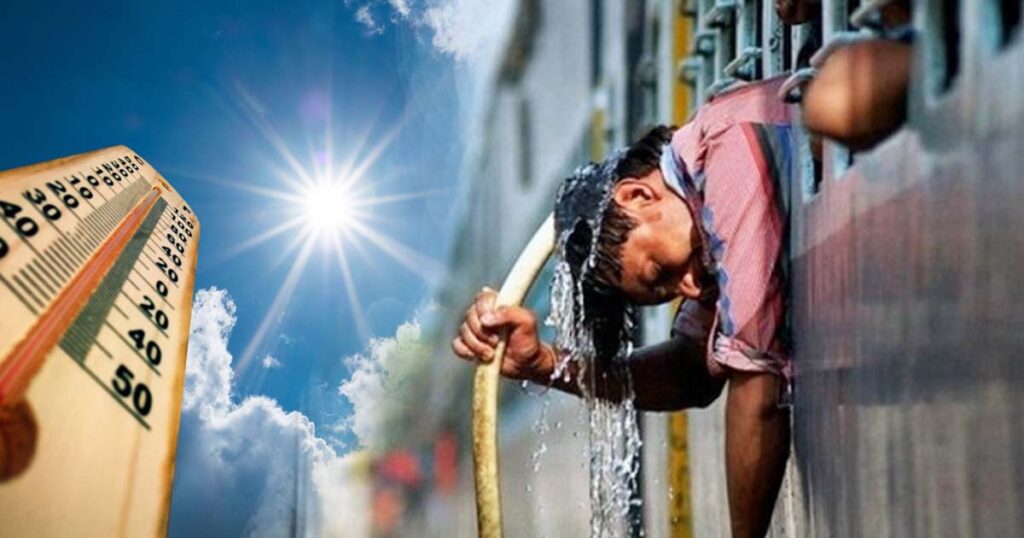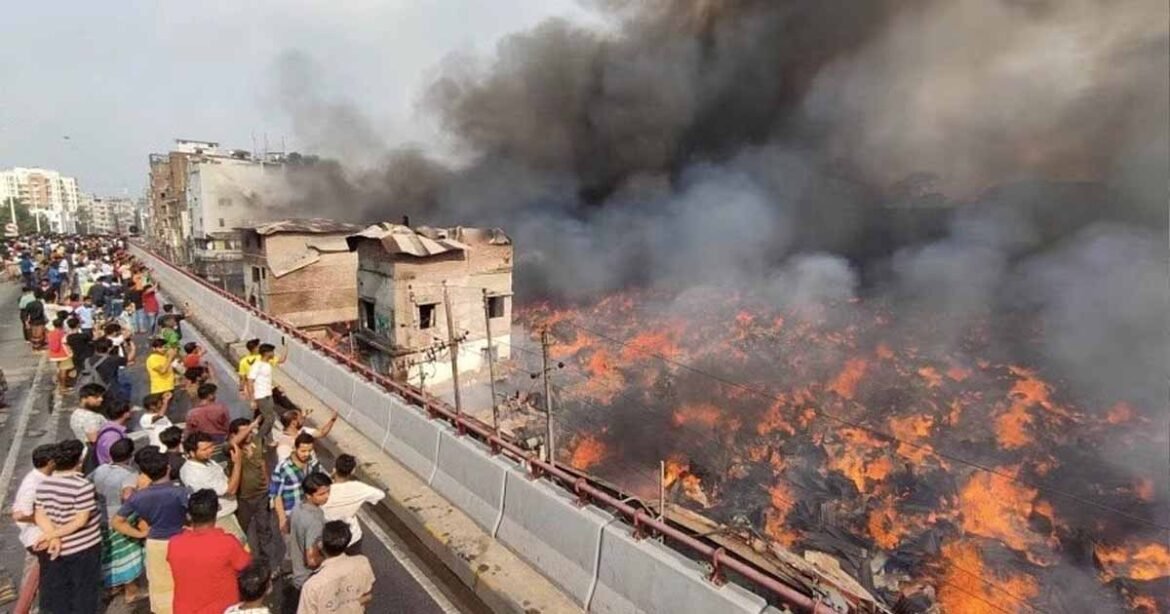Frequent fire incidents are causing major losses to shop owners and warehouses in Dhaka city. Negligence and prolonged heatwaves are two significant factors behind the increasing number of fire outbreaks. The latest incident of fire at the New Super Market shopping mall on 15th April has gutted around 250 shops. This incident took place less than two weeks after the fire at Bangabazar, where thousands of shops were burned down. The rising incidents of fires may have multiple reasons and the consequences of these incidents can have dire impacts the local economy.
Negligence and high electricity usage are fuelling fire incidents
According to Dinmoni Sharma, the Deputy Director of Fire Service and Civil Defence, Dhaka Division, the rising number of fires is mainly due to the dry season, high temperatures, and electricity mismanagement. The shops and warehouses are overburdened with goods, and the narrow alleys do not allow proper ventilation, creating hazardous conditions. Negligence from shop owners, who do not follow safety protocols, is also a significant reason for fire outbreaks. The shopkeepers leave electrical appliances turned on or fail to take prompt actions during the early stages of a fire.
Negligence in law and rules
The absence of proper urban fire safety systems and the pervasive culture of non-enforcement of the law, including violations of rules for constructing buildings, have contributed to the increase in fire incidents in Bangladesh. As the urban areas expand without basic infrastructure like fire stations, people in the capital and other major cities are at high risk of fires. In the garment factories, quality fire safety measures have been ensured as the pressure from foreign buyers after the Rana Plaza tragedy led to safety improvements in most buildings housing such factories. However, such measures are not being taken in other offices, factories, and residential houses, both in high-rise and low-rise buildings. Consequently, the government should strictly enforce the building code to ensure urban fire safety, and every floor should have fire extinguishers, and people should be trained to use them in case of fire incidents.
Prolonged heatwave in the city
The city has experienced high temperatures in the past, but the prolonged heatwave, which started on 4th April, is causing exceptional discomfort to the residents. The heatwave has further aggravated the already challenging conditions, making it difficult for firefighters to control the blazes. The intense summer heat, coupled with the dense smoke from the fires, is creating a hazardous situation for the shopkeepers and the rescuers.
Bangladesh is known for its hot and humid weather conditions, and the heatwave has become a major contributing factor to fire outbreaks. As per experts, electric short-circuit is the primary cause of the rise in fire incidents in urban areas as most buildings are not constructed maintaining the building code. Furthermore, there are at least three major causes of fire incidents – electric disturbances, different types of burners, and burning cigarettes.

Consequences of the fire incidents
These fire incidents are causing significant losses to the local economy. Thousands of shop owners are losing their livelihoods, and many warehouses have been destroyed. The losses can reach millions of taka, which the shop owners might not be able to recover. Moreover, the timing of the fires during the festive season of Eid is particularly concerning, as it may hamper the sale of goods during the peak season, leading to further financial losses.
Fire Service warns of high fire risk in Dhaka markets
Fire Service and Civil Defence department has found that all 58 markets and shops inspected in Dhaka, the capital of Bangladesh, in the first three months of 2023 are at risk of fire. Nine of these markets have been identified as highly risky, 35 are risky, and the remaining 14 moderately risky. The main reason for such risks is noncompliance with building codes and rules by market owners, according to Fire Service Director Lt. Col. Tajul Islam. The situation has not improved since 2019, when a list of 1,048 markets and shops declared vulnerable to fire was published. Of them, 428 were very risky.
During construction work, building codes are not being followed, and in some cases, the original design is modified to expand the market. Furthermore, the fire service cannot force anyone to comply with the rules, and can only request that everyone ensures fire safety. Fire Service officials claim that they have repeatedly sent letters to the owners of high-risk markets, but no one has shown any interest in implementing their instructions. Several markets identified as highly vulnerable in the list have since caught fire, including Dhaka New Super Market, which was burnt down on 15 April.
The nine highly risky shopping centres include Gausia Market, Barishal Plaza Market, New Rajdhani Super Market, Alauddin Market, Shakil Anwar Tower, Shahid Ullah Market, Sharif Market, Masha Katara 22 Market, and Rose Nil Teesta Market. The Fire Service and Civil Defence department says that the owners of these markets must ensure that their buildings are constructed in accordance with fire safety laws to prevent accidents. The Fire Service and Civil Defence department’s recent warning about the high fire risk in Dhaka markets highlights the urgent need for action. Moreover, it is essential to note that the consequences of these fire incidents are not just limited to economic losses. The loss of property and livelihoods can have a significant psychological impact on the people affected. It is crucial to provide adequate support and assistance to the victims of such incidents, including counselling and financial aid.
To end, the frequency of fire incidents in Dhaka is alarming. Negligence and high electricity usage are causing fire incidents, which are causing significant losses to the local economy. Proper safety measures and protocols should be followed, and the shop owners should be made aware of the dangers of such incidents. The local authorities should also ensure that the electricity infrastructure is in place and capable of handling the high load during peak seasons. Proper preventive measures and awareness can save thousands of shops and the livelihoods that depend on them.


